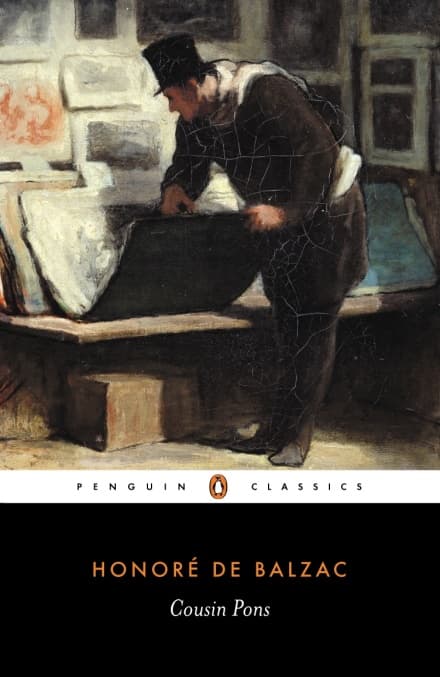
Book Review Summary: Cousin Pons
Introduction
"Cousin Pons" is a novel by Honoré de Balzac, a renowned French novelist and playwright known for his mastery of realism in literature. Set in Paris, this story revolves around the life of Sylvain Pons, a mild and impoverished musician who is accompanied by his loyal friend, Schmucke. Pons's life takes an unexpected turn when his wealthy relatives become aware of the true value of his art collection. In this article, we will delve into the book's summary, author information, and readers' rave reviews to provide a comprehensive book review summary.
About Honoré de Balzac
Honoré de Balzac, the author of "Cousin Pons," was a prominent French novelist and playwright who lived in the 19th century. His magnum opus, "La Comédie humaine," comprises almost 100 novels and plays that present a panoramic view of French life after the fall of Napoléon Bonaparte in 1815. Balzac's writing style is characterized by keen observation and unfiltered representation of society, making him one of the founders of realism in European literature. His multi-faceted characters and immersive storytelling have captivated readers for generations.
Analysis of Views
-
Meditation on Mortality: Readers often find "Cousin Pons" to be a meditation on mortality, exploring the themes of death and the human condition. Balzac's portrayal is more cynical than mournful, offering a realistic and unflinching look at the fragility of life.
-
Characters and Friendship: The characters in the novel, particularly Pons and Schmucke, are admired for their loyalty and camaraderie. Readers empathize with their struggles and appreciate the depth of their relationship.
-
Societal Critique: The novel provides a critical commentary on society, highlighting the corrupt nature of people's actions driven by greed and the pursuit of wealth. The story delves into the darker aspects of human nature, revealing the extent to which individuals will go to acquire power and possessions.
-
Detailed Description and Setting: Balzac's attention to detail in describing the streets and neighborhoods of Paris is highly praised by readers. The vivid descriptions transport them into the world of the characters, creating a sense of immersion and authenticity.
-
Humanist Values: Balzac's unwavering humanist values shine through in "Cousin Pons." The novel explores the complexities of human relationships, showcasing both virtues and vices. It delves into themes such as friendship, love, and the importance of integrity in the face of adversity.
Reasons for Recommendation
-
Powerful Storytelling: Readers highly recommend "Cousin Pons" for its powerful storytelling and Balzac's ability to create compelling characters. The novel's exploration of human nature, greed, and the corrupting influence of wealth captivates readers from start to finish.
-
Realistic Portrayal: Balzac's realistic portrayal of society in "Cousin Pons" resonates with readers. The novel provides a raw and unvarnished look at the darker aspects of human behavior, making it a thought-provoking read that challenges readers' perceptions.
-
Emotional Impact: The emotional impact of the novel is another reason why readers recommend it. The story touches upon themes such as mortality, friendship, and loss, evoking strong emotions in readers. It leaves a lasting impression on those who engage with it.
Conclusion
"Cousin Pons" by Honoré de Balzac is a powerful novel that explores themes such as mortality, greed, and human nature. Through its compelling characters and detailed setting, Balzac offers a cynical yet thought-provoking portrayal of society in 19th-century Paris. Readers highly recommend this book for its powerful storytelling, realistic portrayal, and emotional impact. While some find it depressing due to its exploration of darker aspects of human behavior, others appreciate its ability to challenge their perceptions and leave a lasting impression. "Cousin Pons" is a must-read for those interested in realism in literature and seeking an immersive journey into the complexities of human relationships and societal dynamics.